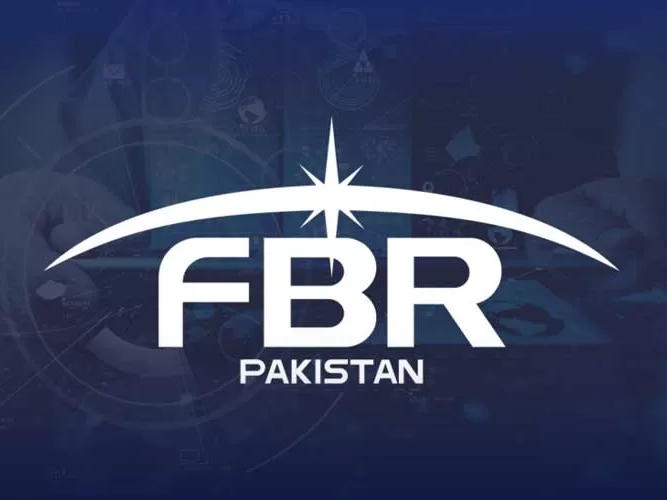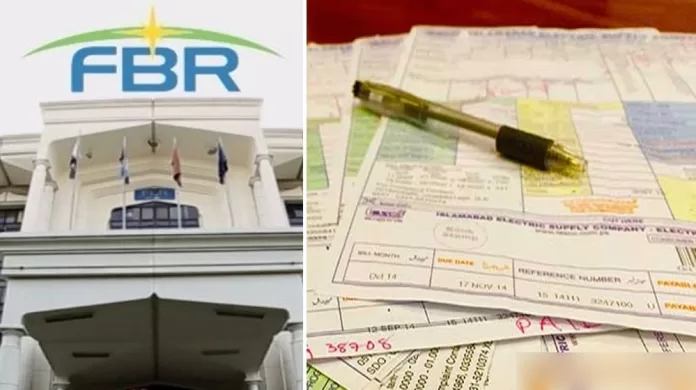Introduction
Pakistan has recently witnessed a disturbing increase in suicides among individuals overwhelmed by unpaid electricity bills. The crisis reached its peak in August, resulting from a sharp rise in electricity prices, pushing many to tragic extremes as they struggled to manage their expenses. The already dire situation, aggravated by uncontrollable inflation, was further heightened by a swarm of additional charges, which expanded the bills far beyond the actual cost of consumption. These charges encompass various taxes, such as income and sales taxes, as well as levies related to state-run radio and television services, and fuel price adjustments.
Consequently, numerous small and medium-sized businesses have been forced to shut down owing to severe financial losses, while households have been left with no room in their budgets. This harsh economic reality has raised concerns about the sustainability of these businesses and the overall health of the national economy. Central to the theme of this context is the low level of tax collection. Taxes are needed to run the state and its institutions including expenditures on economic infrastructure (roads, public transportation, and sanitation), legal systems, public safety, education, health-care systems, military, scientific research, culture and the arts, public works, distribution, data collection and dissemination, public insurance, and the operation of the government and even the parliament. Pakistan’s ability to generate adequate revenue, especially given the country’s widening fiscal deficit, is a major concern. The nation’s debt levels have reached a point where nearly half of the gross domestic product (GDP) is consumed by debt servicing, making the prospect of additional borrowing highly challenging. Since its inception the state has not been able to install a taxation system that earns enough revenue to run the state and provide for the socioeconomic and cultural needs of its fast growing population in a growingly dangerous region requiring robust national security. Successive World Bank and Asia Development Bank programs have demanded respective sitting governments to broaden the tax basis in order to stabilise the economy. So far these appeals have not been successful.

A significant issue contributing to this fiscal imbalance is the widespread non-compliance with tax obligations, particularly income tax. While the general population pays various indirect taxes, the resistance to paying direct taxes, especially income tax, is a major concern. This resistance raises an important question: Why do so many people continue to avoid paying their taxes? One key factor is the government’s failure to communicate effectively. Convincing people to part with their hard-earned money for the greater good is difficult without clear and compelling communication. The government has a responsibility to clearly explain the benefits of a robust tax system and how it will tangibly improve the lives of ordinary citizens.
In addition, most political figures supplement their incomes with earnings from side jobs, real estate, and other sources, leading to the perception that wage earners are easy targets for tax collection, thereby intensifying the issue of inadequate tax coverage. Various business sectors, protected by political connections, evade their fair share of taxes, leaving salaried workers, who receive their income on a regular basis, to shoulder a disproportionate fiscal burden. Reforming the tax system and building public trust in it remains an extremely challenging task.
While raising taxes is inherently unpopular, in Pakistan, the wealthy often evade their financial responsibilities, compelling the government to depend on foreign aid. The absence of a robust tax system deepens socioeconomic inequalities, allowing the excesses of the elite to remain untouched and beyond the reach of public welfare initiatives. The elite have essentially engineered a fiscal system that resembles a precarious Ponzi scheme—seemingly sustainable but fundamentally unstable and prone to sudden collapse.
The poor bear the brunt through various indirect taxes, despite less than 1% of the country’s 241 million citizens paying direct income taxes. Most of the tax collection in Pakistan has traditionally been through indirect taxes which represent 60 percent of the total tax collected. One of the motivations is that no political government wants to be seen raising individual taxes, hence indirect taxes that are anonymous and concern everybody dominate the structure. However, indirect taxation provides another important advantage to the state: it offers very minimal opportunity for tax evasion. The mix of tax collection from different sectors in Pakistan is such that manufacturing contributes 52 percent of all taxes while it only represents 20 percent of the GDP. The Services sector contributes 37 percent of taxes while it represents 61 percent of GDP. Agriculture is our boon. It accounts for around 19 percent of GDP but pays less than 1 percent of all taxes, not easy to be dealt with when all the feudal landowners are sitting in parliament.
Pakistan’s tax system is highly complex and does not add much to the country’s economic strength. Despite being the sixth most populous nation globally, its tax-to-GDP ratio is only 10.3%. The system is largely dependent on indirect taxes, with nearly 60% of annual tax revenue derived from Value Added Tax, which is impaired with inequities due to zero rating grants to specific segments or exemptions. The International Monetary Fund has regularly pushed for the elimination of these grants to align with worldwide VAT standards. These exclusions and considerations for political purposes have eroded the tax foundation, leading to a loss of Rs. 400 billion approximately in 2023 alone.
Furthermore, most of the collected taxes go towards servicing debt, yet the debt burden continues to grow yearly. This year, the tax collection target is Rs. 9.4 trillion, of which, according to IMF estimates, with interest payments accounting for Rs. 8.8 trillion. Tax avoidance and evasion are significant challenges, driven by ineffective laws, weak enforcement, and a cash-based economy, constricting the government’s capacity to improve public services. Despite the severity of these issues, political parties have historically avoided addressing tax reforms during elections to avoid alienating voters.
Another critical issue absent from the agendas of political parties is the Agricultural Income Tax (AIT). A quarter of Pakistan’s GDP comes from agriculture but enjoys federal exemptions. Provincial governments struggle with agriculture based tax collection. For instance, Punjab could potentially collect Rs. 55-75 billion annually but currently gathers less than Rs. 3 billion. This results in the central government funding local projects, heightening issues of equity. Rapid urbanization in Pakistan has put immense pressure on existing service delivery systems. Property taxes, a crucial revenue source, are underperforming due to tax policies and unwillingness to revise property rolls. For example, property tax revenue from Punjab is less than that of Chennai, an Indian city. This poor performance is partly due to the lack of effective devolution of power to local governments. While various political parties propose administrative reforms and other solutions, empowerment of local governments in the real sense would require bigger steps and actions like constitutional amendment.
Recommended Government Actions
Pakistan’s tax system is hindered by complex laws, outdated tax collection mechanisms, and excessive discretion given to tax authorities, resulting in low revenue and a perception of corruption and inefficiency among tax collection bodies. The tax base for most taxes is narrow due to extensive exemptions, concessions, and the presence of a significant black economy. The main reasons for low fiscal resource mobilization in Pakistan include a lack of commitment from policymakers, state capture by vested interest groups, and ineffective reform strategies. It is essential to determine which industries require such exemptions, for what reasons, and for how long. Additionally, an evaluation should be made to see if these exemptions have achieved their intended goals, such as job creation and economic growth. Tax rates and policies should remain stable, avoiding frequent changes through mini-budgets, which create uncertainty and force businesses to speculate on tax policies. A uniform approach to taxing goods and services is needed to allow consumer and investment decisions to be driven by market realities. The tax system must be simplified and made more transparent. One example is the taxation of telecommunication, which should be structured differently from what it is now.
Those who have important reasons to make many or long phone calls (and play games, make money, etc on the phone) will have to pay, but those who just like to chat might want to limit this hobby of theirs. In any case from the point of view of tax collection, everybody can talk as much as he or she wants to, resulting in higher tax collection which will benefit the society by providing more money for investment in economic and social infrastructure.
The Federal Board of Revenue (FBR) has become overly focused on increasing the number of tax filers. However, limited research on filers suggests that many do not pay significant taxes despite filing returns. To boost the number of filers, the FBR has introduced discriminatory taxes that penalize non-filers, such as taxes on bank withdrawals and asset purchases. These measures have not significantly increased revenue but have distorted transactions and asset prices, slowing down investment and economic growth. The acceptance of transaction and presumptive taxes from non-filers reduces the pressure to file regular tax returns, and the distinction between filers and non-filers, based on rate differentials, has not been effective. Instead, it has created a premium for remaining a non-filer.

Restructuring the FBR, which is the pillar organization of Pakistan’s tax system, is crucial. Overstaffing needs to be addressed, with retaining people who are right for the job. Policy areas should be separate from tax administration. With advancements in Artificial Intelligence, there should be a shift towards automation rather than relying on manual procedures. Improving the FBR’s reputation is essential to bridging the trust gap and encouraging compliance. Given the large number of inactive taxpayers, consolidating tax collection under a single agency could improve efficiency and effectiveness. The spotlight must be on widening the tax base, a longstanding issue with minimal improvement.
According to the FBR’s latest list for the 2023 tax year, there are 3,665,612 active income tax filers and 207,194 active sales tax filers.
Many people register only to avoid paying more while declaring incomes below the relative tax thresholds. The drive to detect non-filers has not produced any significant results, despite the availability of relevant data. To assess the commitment of legislators, one must examine the measures taken to target sectors that have a larger contribution to GDP, such as agriculture, gold, retail, real estate and foreign exchange, which mostly avoid taxation. In this situation, additional taxes on existing taxpayers would only further discourage compliance.
Rationalizing tax laws is the only way forward, with the intention to simplify rather than add complexity and hindering economic goals. New requirements are frequently applied not keeping in mind the prospective litigation expenses, such as those associated with the Super Tax on elevated earners or the Capital Value Tax. Policies must be consistent and stable to accelerate business growth in particular and stabilise the economy at large. In the fiscal year 2022-23, direct taxes accounted for 32.33% of total revenue, while indirect taxes made up 49.32%.
For the fiscal year 2023-24, the budget allocates 34.38% to direct taxes and 41.69% to indirect taxes. A closer look reveals that a substantial amount of direct tax revenue is gathered indirectly via withholding and advance taxes. Those below the taxable levels still pay the taxes, resulting in inefficiencies and unnecessary refunding delays.
Introducing a simple tax system of flat rates for individuals and associations, like the corporate taxes, could rationalize processes. Applying a single-digit sales tax rate without input tax allowances would decrease disputes and administrative burdens.Furthermore, standardizing provincial sales tax rates across provinces for similar services would eliminate competitive tax advantages and resolve issues related to the origin and destination of taxes, promoting harmonization.
In conclusion, overhauling Pakistan’s tax system entails genuine and sustained endeavours across all interconnected elements of the tax framework. The success of initiatives in this area would yield longterm benefits for the ailing economy, offering a more sustainable solution compared to the short-term measures typically taken under pressure from lenders to meet revenue targets.




